Pulmonary Fibrosis Treatment Cost in India
Unlock Exclusive Discount : Your Gateway to Premium Healthcare with Medsurge India Health Value Card.

Unlock Exclusive Discount : Your Gateway to Premium Healthcare with Medsurge India Health Value Card.

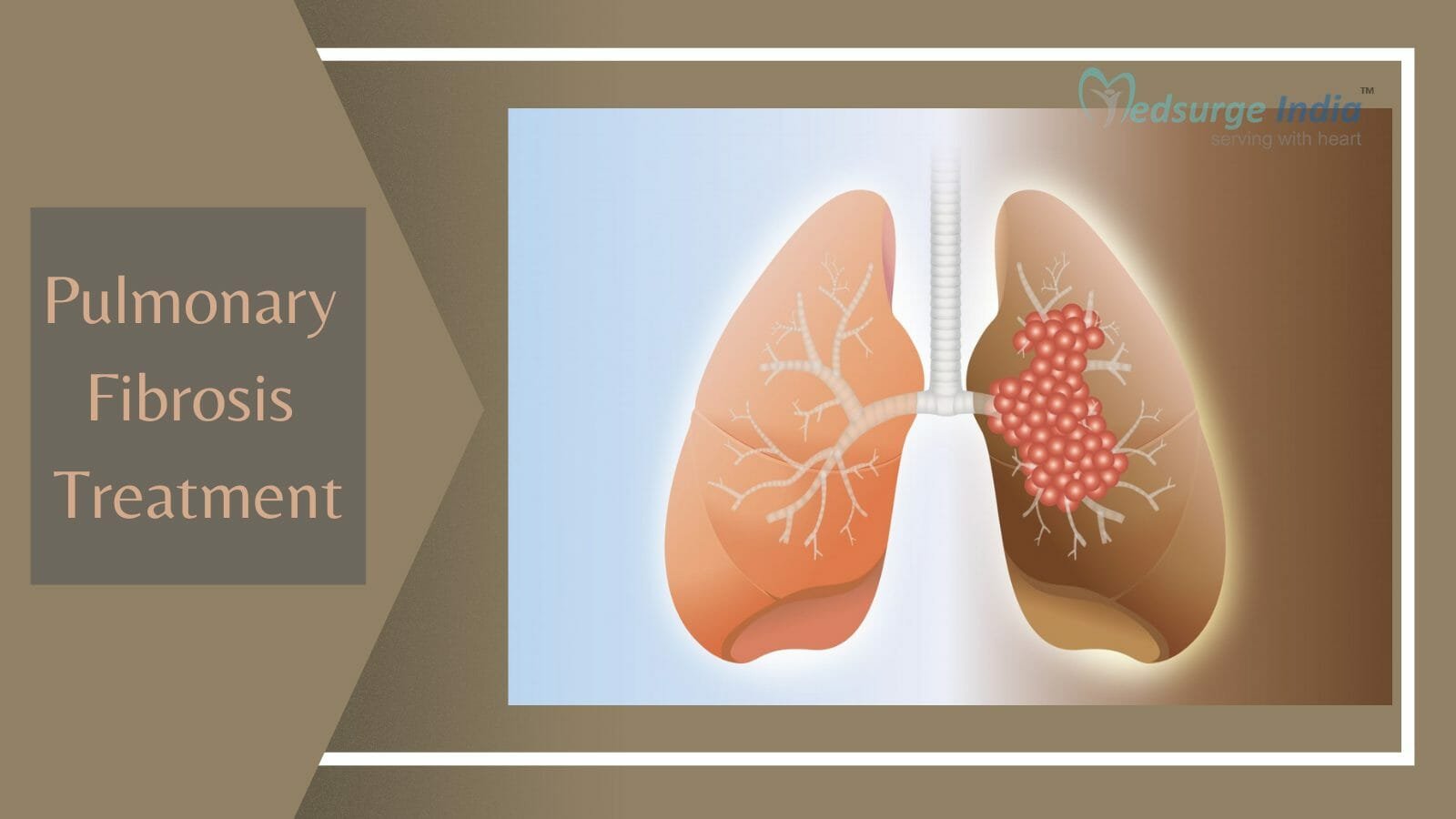
The most common type of lung disease is pulmonary fibrosis, which is characterized by the scarring and damage of lung tissues. Because of the rigidity of the tissues caused by lung scarring, the lung’s normal functioning is severely impaired. The patient’s ability to breathe normally has been compromised. The condition could be caused by a variety of reasons, although the origin is usually unclear. Idiopathic pulmonary fibrosis is the name given to such cases. The lungs are irreversibly damaged by pulmonary fibrosis, however, pulmonary fibrosis treatment in India can assist to alleviate the symptoms. A lung transplant may be the best option, but it comes with risks.
The pulmonary fibrosis treatment cost in India depends upon various factors like age and the health of the patient.
Pulmonary fibrosis is a term that refers to a group of significant lung disorders that affect the respiratory system. Pulmonary fibrosis scars and thickens lung tissue. It affects the lung’s connective tissue as well as the alveoli (air sacs inside the lungs).
The damage to the lungs worsens over time. Lung tissues that are rigid and stiff don’t expand as well as they should, making breathing difficult. When you have pulmonary fibrosis, you may experience shortness of breath while performing regular tasks that never seemed tiring before.
Scarring of the lungs occurs in people with pulmonary fibrosis, and it progresses until the lungs can no longer give enough oxygen to the body’s organs and tissues. Some individuals with pulmonary fibrosis develop more serious lung disorders, such as lung cancer, pulmonary emboli (blood clots in the lungs), pneumonia, or excessive blood pressure in the lung’s blood vessels (pulmonary hypertension). The majority of those who are affected live for 3 to 5 years after being diagnosed. The disease’s progress, however, is exceedingly diverse; some people become seriously ill in a couple of months, while others may live with it for a decade or longer.
Know more: Lung Cancer Treatment Cost in India
The following are some of the signs and symptoms of pulmonary fibrosis:
The progression of pulmonary fibrosis, as well as the severity of symptoms, varies greatly from person to person. Some people fall ill with a severe ailment very quickly. Others have mild symptoms that gradually increase over months or years.
Some people experience the following symptoms as the condition progresses:
Some people may have a sudden worsening of their symptoms (acute exacerbation), such as severe shortness of breath, that lasts for days or weeks. A mechanical ventilator may be used to help those with acute exacerbations. Antibiotics, corticosteroids, and other drugs may be prescribed by doctors to treat an acute exacerbation.
When people are exposed to pollution, certain drugs, or an infection, they can develop pulmonary fibrosis. Doctors, on the other hand, are mystified as to what causes pulmonary fibrosis.
The tissue surrounding and between the air sacs (alveoli) in your lungs scars and thickens as a result of pulmonary fibrosis. As a result of this, it becomes more difficult for oxygen to enter your bloodstream. Long-term exposure to certain toxins, specific medical disorders, radiation therapy, and some drugs, among other things, can cause damage.
Some risk factors may increase your chances of developing Pulmonary Fibrosis:
The average Pulmonary Fibrosis Treatment Cost in India starts from USD 1,069. The pricing of the treatment will vary depending on the type of hospital or the location you choose.
| Treatment | Starting Price |
| Lung Transplant | USD 25,000 |
| Cities | Starting Price |
| Delhi | USD 1,069 |
| Gurgaon | USD 1,069 |
| Noida | USD 1,069 |
| Mumbai | USD 1,069 |
| Hyderabad | USD 1,069 |
| Chennai | USD 1,069 |
| Kolkata | USD 1,069 |
| Bangalore | USD 1,069 |
Note: Do remember that the pricing and the treatment for Pulmonary Fibrosis Treatment cost in India will vary depending on the patient’s choice and other various factors.
The following here are some variables that can affect Pulmonary Fibrosis Treatment Cost in India:
Furthermore, even the standard and grade of medical care and amenities are comparable to those of the most prestigious healthcare facilities in the world, even when the expense of lodging, meals, and transportation is taken out.
Also, under the direction of the most skilled physicians, Medsurge India provides patients with the lowest Pulmonary Fibrosis Treatment Cost in India.
Your medical history will be examined by your healthcare provider. You will also get a physical exam to assess your symptoms thoroughly. They may listen to your breathing with a stethoscope, looking for unusual sounds (like crackling).
Pulmonary fibrosis might appear similar to other, more common lung diseases, making identification complicated. To diagnose pulmonary fibrosis, your doctor may request one or more of the following tests:
Pulmonary fibrosis causes lung scarring that cannot be reversed, and no current treatment for pulmonary fibrosis in India has proven to be useful in slowing the disease's progression. Some medications may temporarily relieve symptoms or reduce the progression of the condition. Others may be able to assist in improving one's quality of life. Doctors will assess the severity of your ailment in order to decide the best treatment option for you.
One or more of the following treatments may be suggested by your doctor:
Giving your body more oxygen makes it easier to breathe. It may also help you feel more energetic and healthier.
Pulmonary rehabilitation can help you better control your symptoms and function on a daily basis. The following topics are addressed in pulmonary rehabilitation programs:
For those with pulmonary fibrosis, lung transplantation may be a possibility. A lung transplant can significantly improve your quality of life and allow you to live longer. However, problems such as rejection and infection might occur after a lung transplant. Your doctor may suggest a lung transplant as a treatment option for your disease.
There is currently no cure for pulmonary fibrosis. However, scientists from all across the world are attempting to change that.
Consult your doctor to see if you qualify for a clinical trial. Participating in a clinical study may provide you the opportunity to try one of the most cutting-edge pulmonary fibrosis treatments.
Newer drugs, such as pirfenidone (Esbriet) and nintedanib (Ofev), may be recommended by your doctor. Pulmonary fibrosis can be slowed with the use of these drugs.
Anti-acid drugs may be prescribed by doctors to treat gastroesophageal reflux disease (GERD), a digestive disorder that is frequent in persons with idiopathic pulmonary fibrosis.
Living with pulmonary fibrosis necessitates being actively involved in your own care and being as healthy as possible. As a result, it's important to:
If you have pulmonary fibrosis, you will almost certainly need to see a pulmonologist (lung specialist) on a frequent basis. Your healthcare practitioner will collaborate with you to ensure that your lung function is preserved and that you have the best possible quality of life. They'll work with you to identify the best medication, supportive care, and clinical trials to address the symptoms of pulmonary fibrosis. Joining a pulmonary fibrosis support group might help you get personal information and guidance from people who have been through similar experiences.
A: Pulmonary fibrosis causes lung scarring that cannot be reversed, and no current treatment has proven to be useful in slowing the disease's progression. Some medications may temporarily relieve symptoms or reduce the progression of the condition. Others may be able to assist in improving one's quality of life.
A: Environmental contaminants, certain drugs, various connective tissue illnesses, and interstitial lung disease are all causes of pulmonary fibrosis. The term "interstitial lung disease" refers to a range of disorders that cause the lungs to become inflamed or scarred. In the vast majority of cases, the cause is unknown.
A: Yes, most doctors consider pulmonary fibrosis to be a deadly illness. Pulmonary fibrosis is a disease that worsens over time (gets worse over time). There is no cure, and it will eventually kill you. Many factors influence how long and well patients with pulmonary fibrosis can live.
A: It's termed oxygen therapy or supplemental oxygen when you utilize oxygen as a medical treatment. The majority of people with pulmonary fibrosis require oxygen at some time throughout their treatment. You may require oxygen during the day, only at night, or when exercising.
A: Pulmonary rehab is an exercise, education, and support program that teaches you how to breathe better and strengthens your lungs. Walking on a treadmill, riding a stationary bike, stretching, and modest weight training are all common pulmonary rehab activities. Make use of your oxygen.

Surgical Oncologist
Senior Consultant
12+ Years
BLK Max Super Speciality Hospital, New Delhi
View Doctor
Medical Oncologist
Associate Consultant
10+ years
Meitra Hospital, Calicut, Kerala
View Doctor
Radiation Oncologist
Senior Consultant
10+ years
Apollo Proton Cancer Centre, Chennai
View Doctor
Surgical Oncologist
Senior Consultant
8+ years
Meitra Hospital, Calicut, Kerala
View Doctor

Medical Oncologist
Consultant
15+ years
Care Hospitals HITEC City
View Doctor
Surgical Oncologist
Sr. Consultant & Associate Clinical Director
20+ years
Care Hospitals HITEC City
View Doctor
Surgical Oncologist
Senior Consultant
13+ years
Care Hospitals HITEC City
View Doctor
Surgical Oncologist
Senior Consultant & Head of the Department
22+ years
Care Hospitals HITEC City
View Doctor
Surgical Oncologist
Senior Director
15+ years
Fortis Hospital, Vasant Kunj, Delhi
View Doctor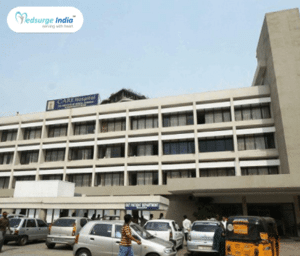
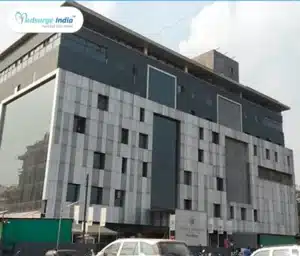
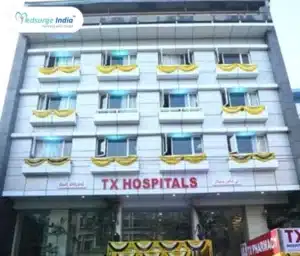
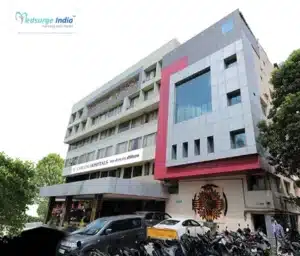



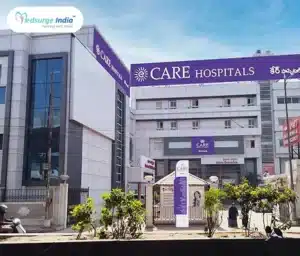
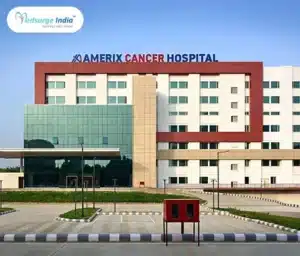
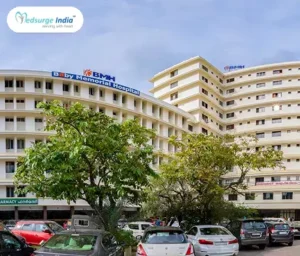
By using our site, you agree to our Terms and Conditions, Privacy Policy and Refund Policy. Medsurge India provides reliable healthcare information and treatment options to support informed decision-making. Our content is designed to support and complement the guidance of your treating doctor, helping you feel informed and confident throughout your healthcare journey. We also Accept International Payments.

Copyright © 2025 NSM ONLINE SOLUTIONS PRIVATE LIMITED. All rights reserved.